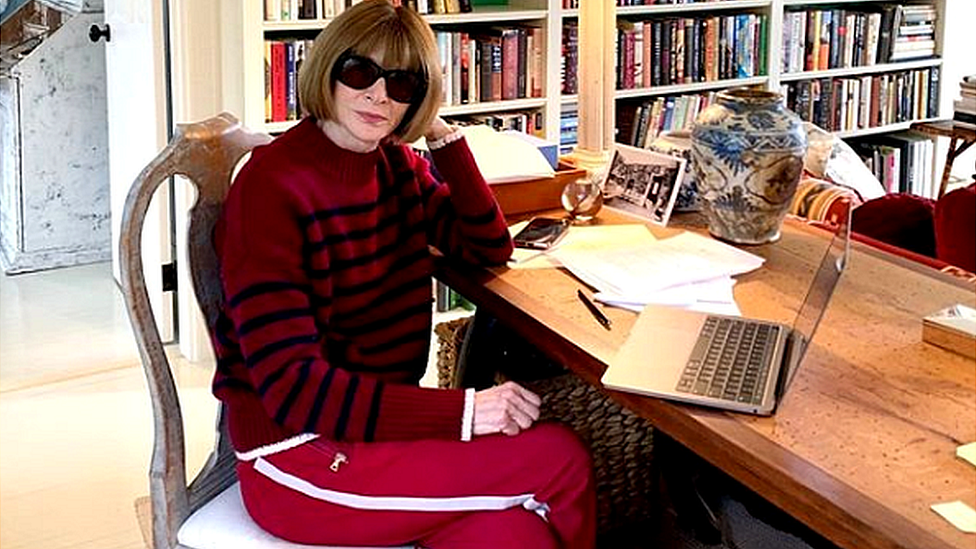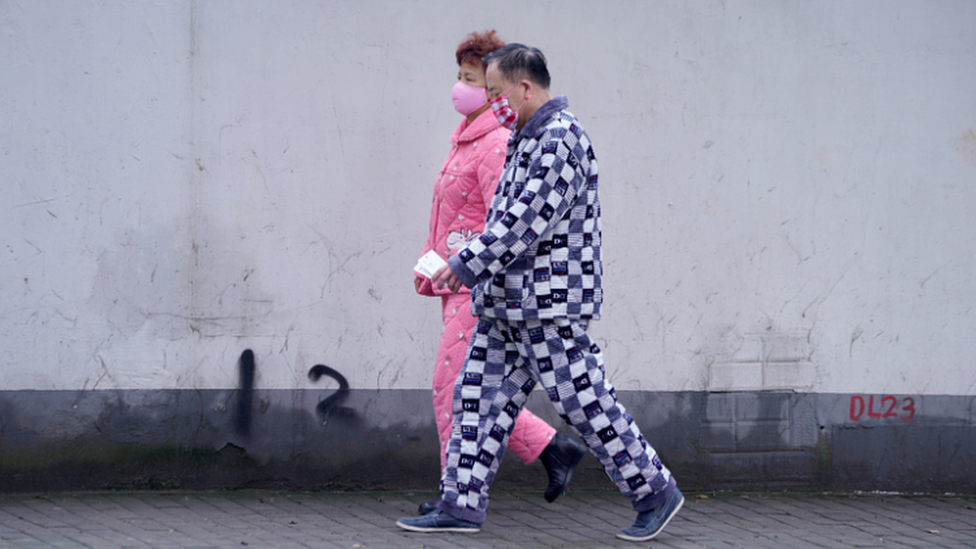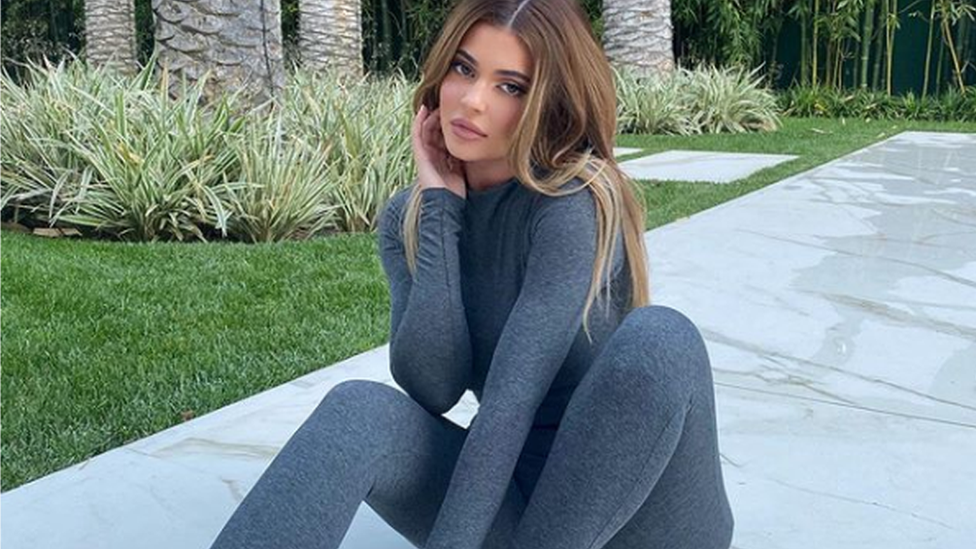Coronavirus: 'I returned my suits and spent £100 on joggers'
- Published

Lawyer Samantha Hewitt has swapped her suits for loungewear during the lockdown
A few weeks ago, London-based lawyer Samantha Hewitt decided to refresh her office wardrobe, going online to buy new suits and dresses.
Then the coronavirus lockdown hit and suddenly much of Britain was forced to become a nation of home workers.
Ms Hewitt immediately sent her sober corporate gear back, and spent £100 on comfy loungewear instead.
Now the erstwhile smart dresser admits she is pretty much living in casual clothes suitable for relaxing at home, be it hoodies, joggers or pyjamas.
"I've found myself saying to my housemates if I'm going for a walk, 'oh it doesn't matter, does it? It's lockdown.'
"Usually, I'd be quite sensitive about going out without my make-up done and wearing normal clothes, even if it's just jeans and a t-shirt. Now it is some variation of a jumper and loungewear bottoms," she says.
The 26-year-old is not the only one making the swap.
Since the lockdown a month ago, online demand for loungewear - defined as a hybrid between pyjamas and tracksuits - has soared 322% in the UK, according to LoveTheSales.com, a shopping website that aggregates sale items from 850 retailers.
Online fashion retailer Boohoo says that sales in April are higher than a year ago.
"People aren't really buying going-out items, but they are buying homewear - hoodies, joggers, tracksuit bottoms," the firm said.
Even fashion doyenne Dame Anna Wintour has been photographed working from home in her joggers.

Dame Anna Wintour, editor-in-chief of US Vogue
Though, admittedly, the editor-in-chief of US Vogue looks infinitely more chic than many of us probably do.
"If you're sat in the same room for 18 hours a day, like a lot of people will be doing, then comfort becomes quite important," says LoveTheSales co-founder Stuart McClure.
"Normally, people are up and about but now you're sort of hovering around at home even though you're working. So I think it is about that psychology of comfort and happiness."
Many retailers such as Asos and Missguided are now advertising comfort wear instead of spring dresses.

People in Beijing stepped out in their pyjamas during China's lockdown. Are Britons far behind?
For struggling retailers, dressing down is a welcome trend, with loungewear one of the few categories currently growing. LoveTheSales says the number of discounts on this type of clothing has dropped dramatically.
This time last year, people spent just over £1bn on clothes for parties and socialising and a further £855m on gear for their holidays, according to market researcher Kantar.
"Obviously, that need has been removed from the market at the moment," says Glen Tooke, a consumer insight director at Kantar.
While he doesn't think demand for loungewear is going to offset the fact that many retailers' stores - which account for 70% of consumer spend - are shut, Mr Tooke thinks it will allow them to retain a link with their customers.
"The smaller or more niche categories should allow retailers to be engaged with their customers and to keep that buying habit going," he says.
The so-called "influencers" who frequent social media are also playing a part in the lockdown loungewear trend.
Search #loungewear on Instagram and watch it return hundreds of thousands of tagged posts, while famous names such as Kylie Jenner publish pictures of themselves in their matching tops and bottoms.

This old thing? Make-up entrepreneur Kylie Jenner takes it easy in her loungewear
"Suddenly you can't go out and take a photo of your cool dinner or the great restaurant you're in or whatever it is," says Mr McClure. "Everything's got to be taken at home."
But now that many in Britain are adjusting to working in more relaxed attire, will it be tough to transition back to traditional work clothing? Or were we already heading that way?
Tamara Sender Ceron, senior fashion analyst at Mintel, says: "Prior to the coronavirus outbreak, we had already seen that loungewear and nightwear had benefitted from a shift towards more flexible working over the last two years."
Michael Solomon, a consumer psychologist and professor of marketing at St Joseph's University in the US, agrees. It is now common, for example, to see men not wearing ties in the office and sporting more casual suits.
He says: "What happens in a crisis like this is you already have various fissures, cracks in society that are happening and it tends to accelerate those."
While it is understandable that people put comfort over smartness when working from home, could it make us less effective?
Studies have shown that people are more likely to describe themselves as neat and strategic when wearing smart attire, and as easygoing or clumsy when dressed casually.
"I don't think it is necessary to have a full business suit on, but there is a lot to be said for the notion that we are what we wear," says Prof Solomon.
As for Ms Hewitt, part of her misses dressing up for work.
"When I've had online court hearings or a meeting with an external client and I've put on something smarter, it's quite nice to feel more human again.
"I sort of feel like I've got a bit more of a purpose I guess."
- Published24 April 2020

- Published22 April 2020
